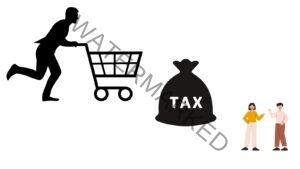Introduction
All taxpayers that deal with zero-rated supplies in Kenya are entitled to VAT refund where they have excess input VAT.
(Post continues after photo)

(Photo by Waka)
The zero-rated supplies are either goods or services, Besides, the zero-rated supplies can either be local supplies that are sold in the local market or they can be export supplies.
[bha id=’https://www.bluehost.com/track/wakaguyu’ size=’190×60′ variation=’01’ align=’none’]
Export supplies
Under the VAT Act (2013), the term export is well defined. The term export in the Act means to take or cause to be taken from Kenya.
This means that a person can export the supply personally or they can delegate another person to export on their behalf. A supply which is either a good or a service is exported to a:
- Foreign country e.g. Uganda, Tanzania, USA, UK etc.
- Special Economic Zones (SEZs) that were established under the Special Economic Zones Act (No. 16 of 2015).
- Export Processing Zones (EPZs) which were established under the Export Processing Zones Act Cap. 517.
Documents required for VAT refunds based on exports
To be refunded the VAT input, the taxpayer must provide various documents. VAT Regulation (2017) lists the documents that are required as proof of exports. Some of the documents that are required are as follows.
General evidence
- Copy of exports tax invoice.
- Proof of payment for the export.
Specific to export of goods
- Road manifest.
- Bill of landing.
- Airwaybill.
- Transfer or export entry certified by a Customs officer at the point of supplies exit.
- For excisable goods, documentation should be provided according to the Excise Duty Act in Kenya.
Specific to export of services
The extra documents that the Commissioner may require as evidence that the service was used or consumed outside Kenya have not been specified. Therefore, the Commissioner will ask for any document depending on the type of the exported service.
These documents are largely from Kenya. However, it seems that the Commissioner also requires documents from the destination country. Probably, the Commissioner may not be satisfied that some of the supplies left the country.
But is the Commissioner justified to ask for these documents yet the taxpayers have provided documents as proof that indeed the exported supplies left the country?
Specific clause in case of doubtful exports
The regulations also empower the Commissioner to require the exporter in writing to provide a certificate stamped by a competent authority in the country of destination. This is for purposes of confirming that indeed, the goods were imported for home use into that country.
Meanwhile, the exports whose further documentary proof is required shall not be treated as exported but as local sales until the certificate is provided and accepted by the Commissioner.
It is within this clause that the Commissioner has from September 2018 asked majority of the exporters with pending refund claims in KRA to provide extra documents as proof of exports.
Extra documents required
The following is a brief explanation of what is required.
a) Duly certified copy of import declaration certificate(s) from the countries of destination.
In every country, there is a requirement for an import declaration for each import. In Kenya, we have the import declaration forms (IDF). Hence, the export customers/consignees have equivalent documents in their countries. The exporters are required to provide certified copies for each import into the export country per the export entry/invoice.
b) Proof of payment of duty in the Countries of destination.
In some countries, there is import duty while in other countries, there is no import duty. For example, flower exports from Kenya into the EU region do not attract import duty due to EPA agreements.
A taxpayer should specify whether the goods exported were subject to any import duty in each of the countries that they exported to. In case the goods were subject to import duty, the customers should provide the import duty payment documents.
c) Proof of payment of taxes concerning the export entry above.
Though exports are not subject to VAT, the income from sales is subject to income tax in Kenya. Proof of payment for this is required. In Kenya, tax is on an accrual basis. Hence, the total of all the invoices issued per year plus any debit notes issued less any credit notes issued should be equal to the company’s turnover in each year of income. The invoices are entered in the sales ledger and are reflected in the annual audited accounts and annual tax returns.
Therefore, the exporters should provide:
- Sales ledger and highlight all export sales invoices in case the company also has local sales.
- Annual audited accounts.
- Annual tax returns.
- VAT 3 monthly returns for each export.
Note that the export figures in the four documents must reconcile.
It is important to also note that at the end of the year, the tax amount payable for the year of income can be:
- Debit balance – there is tax to pay.
- Zero balance – taxable turnover after adjustment was zero.
- Credit balance – there was credit to carried forward due to tax over-payments or losses carried forward.
Therefore, whatever the balance in the year of income, as long as the documents are provided, it is proof of tax payment.
d) In case of export by sea, evidence that the goods were loaded into the vessel including payment of handling fees to Kenya Ports Authority and shipping lines and loading advice issued by Kenya Ports Authority.
This is not for all exporters but only those whose exports are by sea. Some of the documents that are required can be provided by:
- Clearing and Forwarding companies,
- Kenya Ports Authority (KPA), and
- Representatives of the various vessels used use for shipping.
Failure to provide the documents
It is important to provide the required documentary proof within the given time but if it is not possible, a letter should be sent to KRA requesting to extra time. This will be helpful in that the refund claims will not be disallowed but will be treated as still be under process. In case this does not happen, then the refund claims may be disallowed.
Consequences of disallowing the refund claims
The following are some of the consequences of the refund claim being disallowed:
- In case a refund claim is disallowed, KRA will treat the exports as local sales as indicated in the VAT regulations (2017) and levy VAT at the rate of 16% for supplies taxable at the standard tax rate. In cases where the supplies are Zero-rated or exempted locally, there will be no VAT charged.
- Besides, the VAT amount will be subjected to a late payment penalty. (since 1st July 2018).
- Further, the VAT amount will be subjected to late payment interest. [Tax Procedures Act (2015) Section 38].
- The VAT amount may also be subjected to tax shortfall penalty which ranges from seventy-five (75) per cent to one hundred and ten (110) per cent depending on how many times a taxpayer has been caught in deliberately engaging in the vice. [Tax Procedures Act (2015) Section 84.]
- Also, KRA may treat the refund claims as fraudulent claims of VAT refunds and the penalty for this is currently twice the amount of the VAT refund involved which translates to two hundred (200) per cent. [Tax Procedures Act (2015) Section 88].
- The Commissioner may also decide to prosecute the taxpayers.
Is this fair?
Though there is nothing fair in life, some requirements are not fair. Again taxes are not about fairness. The following are a few pointers to the unfairness of these requirements by the Commissioner to taxpayers:
- Though the VAT Regulations (2017) empowers the commissioner to require extra documents, there are taxpayers whose VAT refund claims were lodged before the Regulations became effective. Can regulations be applied retrospectively?
- The VAT Act (2013) and the Tax Procedures Act (2015) have the requirement that after receipt of the VAT refund claim, the Commissioner should communicate his decision to the taxpayer within ninety (90) days and the consequences for failure to do that. For the majority of the VAT refund claims that are affected by these requirements, this requirement has not been fulfilled.
- Since the July year 2016, the Commissioner is required to pay interest at the rate of one (1%) per month for any pending VAT refunds that are late by more than two months. The Commissioner should start paying the interest to taxpayers but has decided to request for more documents probably in the hope that he will escape payment of the one (1%) per cent per month interest.
Therefore, though the Commissioner should not pay fraudulent VAT refund claims, he should not at the same time punish genuine taxpayers. Delays in refunding VAT claims affect business operations and the country’s economy at large.
If the government is intent on achieving the four pillars by the year 2022 and Vision 2030, the refund of genuine VAT claims should be given priority among other things. Release to the business people of the approximate kshs 20 billion in VAT refunds will go a long way in spurring the economy.
Conclusion
This is the first time that the Commissioner has required almost all the taxpayers to provide extra documentary proof of exports. This must have been triggered by something. That something is evidence that some persons may not be exporting anything but are claiming VAT refunds, hence, the requirements.
For any exports henceforth, it is important to get these documents since it looks like the Commissioner does not trust even documents that are provided by his own office and must ask for documents from the destination countries.
In the meantime, before any legal action is taken by any person, it is cheaper to provide the documents required than to pay the 16% principal VAT, penalties and interest.
Our Call …. remember to subscribe to get our latest tax articles.
[bha id=’https://www.bluehost.com/track/wakaguyu’ size=’190×60′ variation=’01’ align=’none’]
(Disclosure: This website receives compensation from companies whose adverts appear here. We only promote products that we have used. We are an independent website and any opinions that are expressed here are our own.)
Feel free to send us tax and investments in Kenya questions or topics via email taxkenya@gmail.com that you wish to be covered in this Website.
Disclaimer
This post is for general overview and guidance and does not in any way amount to professional advice. Hence, www.taxkenya.com, its owner or associates do not take any responsibility for results of any action taken on the basis of the information in this post or for any errors or omissions. Kenyan taxpayers must always rely on the most current information from KRA. Tax industry in Kenya is very dynamic.
©Wakaguyu Wa Kiburi
Email: taxkenya@gmail.com
Twitter: @taxkenya
Facebook: fb.me/taxkenya
Youtube: youtube/taxkenya.com shows





